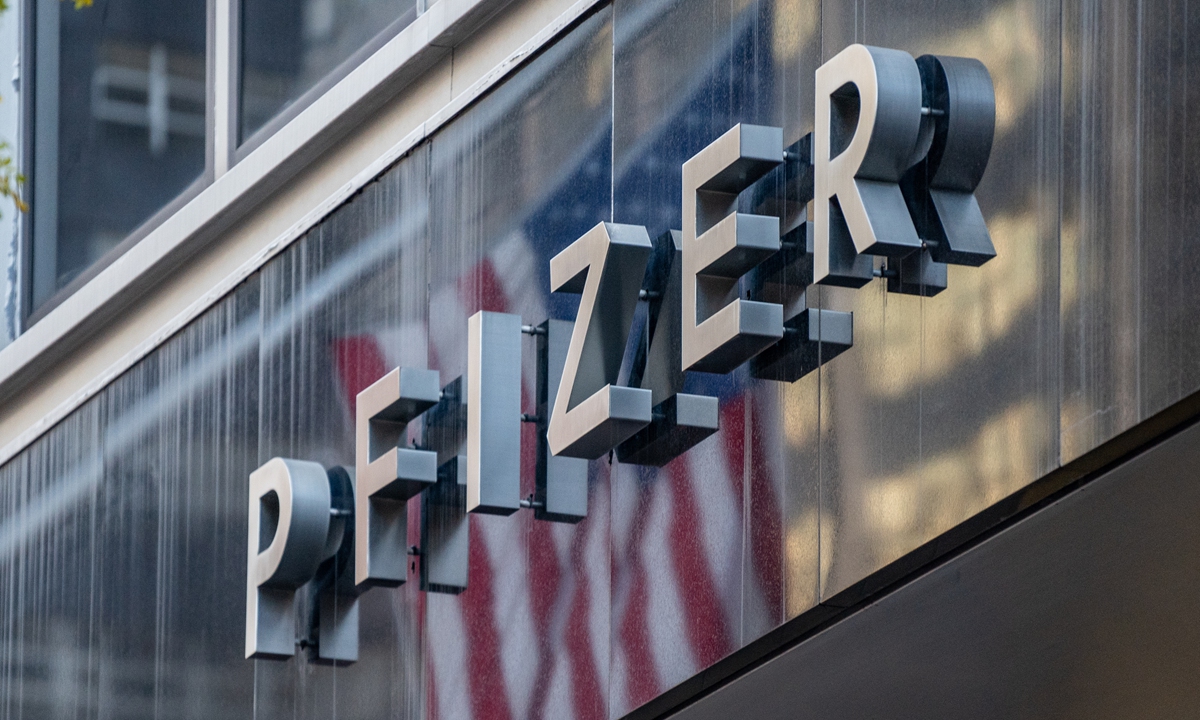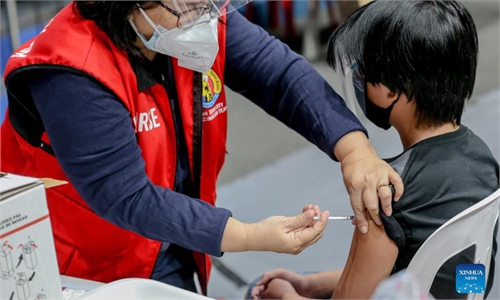China gives green light to Pfizer’s COVID-19 treatment drug Paxlovid, doesn’t waver the country’s determination for ‘dynamic zero case‘ strategy

Photo: CFP
The National Medical Products Administration (NMPA) announced on its official website Saturday it has given conditional approval for Pfizer's COVID-19 treatment drug Paxlovid.
Experts reached by the Global Times said the approval of Paxlovid will boost the public's confidence amid the fight against COVID-19 as it offers an additional option for the country to treat COVID-19 patients. It, however, doesn't imply that China is giving up on its "dynamic zero case" strategy and choosing to "live with the virus," the experts said.
It's the first anti-coronavirus oral drug approved in China. Paxlovid will be used to treat adult patients who have mild to moderate COVID-19 symptoms with a high risk of experiencing a severe case. These individuals include especially those who have underlying problems like chronic kidney disease, diabetes, cardiovascular disease and chronic lung disease, according to the NMPA announcement on Saturday.
The administration also said further study on the drug has to be conducted and submitted.
The news prompted a slew of speculations on China's social media platforms. Netizens wondered whether the approval, a clear sign of nodding to COVID drugs from the West, was heralding a China that will open its borders soon or relax its tight pandemic-fighting policies.
Wang Guangfa, a respiratory expert at Peking University First Hospital, told the Global Times on Saturday that the drug will complement China's already successful medical treatment methods by providing a needed shot for those with underlying diseases. It will play a positive role in treating patients but it will not prevent people from contracting the virus. It is only one part of the COVID-19 containing system, just like the vaccines.
It is not the right moment for China to open to the world when overseas epidemic is still rampant. A compressive and integrated anti-epidemic policy should still be in place, Wang said.
While we expand vaccination, which is still the key measure to prevent people from being infected and developing severe cases, China's "dynamic zero case" strategy that advocates "four-early" measures - early detection, early reporting, early quarantine, and early treatment of COVID-19 cases - remains important, Wang noted.
Zhuang Shilihe, a Guangzhou-based immunologist, also told the Global Times on Saturday that "not a single drug can end the pandemic," stressing the importance of sticking to the "dynamic zero case" strategy and boost the vaccination rate. Vaccines are still prominent in preventing severe cases in those who get infected, Zhuang said, calling on people to continue getting vaccinated.
The approval of Pfizer's Paxlovid is also likely to accelerate the research and development of COVID-19 treatment drugs in China, said experts.



